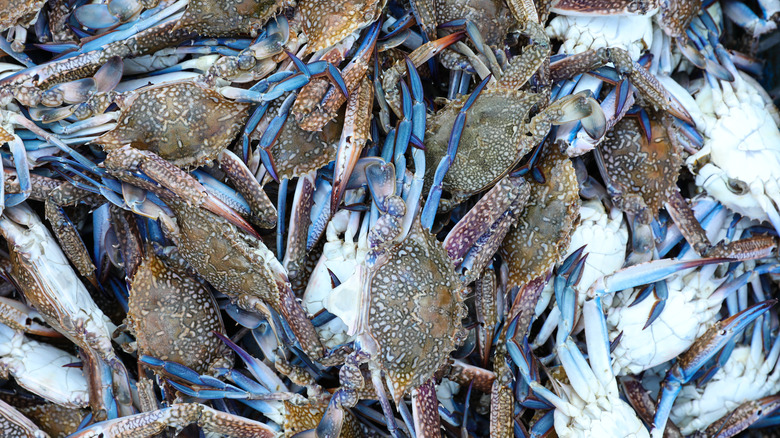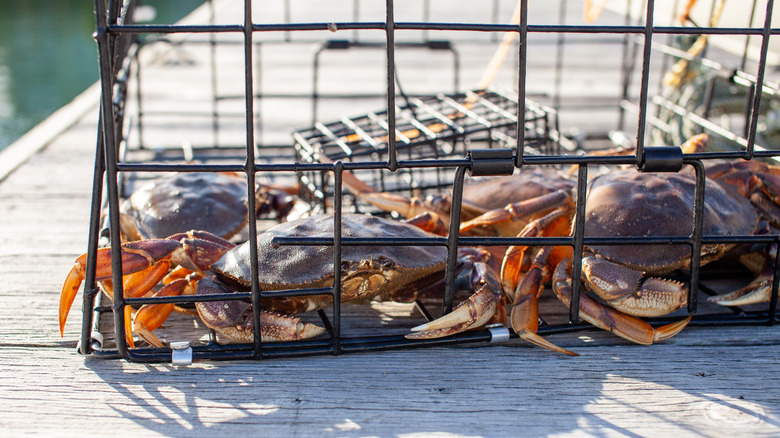Why We'll Face A Crab Shortage In 2022, According To An Expert
Correction 3/1/22: A previous version of this article stated that crabs are overfished. A 2008 management plan was set in place to address the issue, and the Chesapeake Bay Foundation states that the crab population has now been "stabilized and overfishing has been significantly reduced."
Crab is undeniably one of the delicacies of the sea. Crab legs, crispy crab cakes, crab chowder, and innumerable other recipes call for this valuable crustacean. Unfortunately, like many other types of seafood, crab is once again facing a shortage — your crab cakes could become a lot more expensive, folks.
When we hear about a seafood shortage, overfishing is probably first thing to come to mind. But the Maryland Department of Natural Resources 2021 dredge survey says blue crab numbers are slowly increasing thanks to conservation and sustainability efforts. So how can there be an upcoming shortage? Unfortunately, the crab industry is now facing a labor issue that is affecting many other industries as well.
The nationwide labor shortage strikes again
As it turns out, the expected crab shortage isn't exactly due to crab numbers, but rather, worker numbers — or more specifically, the lack of. Each year, the U.S. has only 66,000 available H-2B work visas, according to WTOP News. Although one Maryland crab company was able to grab half of those visas, nearly 140,000 workers applied, says Jack Brooks, president of the Chesapeake Bay Seafood Industries Association.
The crab fishing industry is seasonal, making it tricky to hire anyone other than migrant workers. This has been criticized by labor organizations, but Brooks asserts it is unavoidable as many living in the U.S. are unwilling to accept the difficult and temporary job — especially one that will end right as the winter holiday season kicks off. The limited number of worker visas results in an understaffed and overworked fishing industry.
So even though crab populations are booming, many won't make it to our tables if there aren't enough workers to harvest them. Because the season is yet to start, it's hard to say just how much prices will be affected, but last year's shortage caused cost per pound to nearly triple, says GreenWire.

